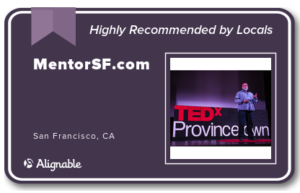
Health insurance is a vital component of employee benefits, providing coverage for medical expenses and promoting overall well-being. Navigating the world of health insurance can be overwhelming, with various plans and options available. Understanding the different types of health insurance can help employees make informed decisions about their healthcare.
PPOs
Preferred Provider Organizations, or PPOs, are a type of health insurance plan that offers flexibility and choice to employees. With a PPO, employees have the freedom to visit any healthcare provider, including specialists, without needing a referral from a primary care physician. PPOs typically have a network of preferred providers, and employees can receive higher benefits when they choose providers within the network. PPOs also provide partial coverage for out-of-network providers, giving employees more options for their healthcare needs. Understanding the benefits and limitations of PPOs can help employees make informed decisions about their healthcare providers and manage their out-of-pocket expenses.
HDHPs
High Deductible Health Plans, or HDHPs, are health insurance plans with higher deductibles but lower monthly premiums. These plans are often paired with Health Savings Accounts (HSAs) or Flexible Spending Accounts (FSAs). With an HDHP, employees are responsible for paying a higher deductible before the insurance coverage begins. Once the deductible is met, the insurance plan typically covers a significant portion of the medical expenses. HDHPs are designed to encourage individuals to take more control over their healthcare spending and save for future medical costs. Understanding the features of HDHPs, including the deductible amount and coverage details, can help employees plan their healthcare expenses effectively. While FSA money must be spent or else it will be lost, HSA money rolls over every year.
HMOs
Health Maintenance Organizations, or HMOs, are health insurance plans that focus on coordinated care and a network of providers. With an HMO, employees are required to choose a primary care physician (PCP) who acts as a gatekeeper for referrals to specialists. HMOs often have a network of healthcare providers who work closely together to provide comprehensive care to patients. Employees typically receive the highest level of coverage when they use providers within the network. HMOs may require employees to obtain referrals from their PCP before seeing a specialist, promoting coordinated and cost-effective care. Understanding the structure and requirements of HMOs can help employees navigate the system more efficiently and make the most of their healthcare benefits.
Health insurance is a critical component of employee benefits, and understanding the different types of health insurance plans is essential for making informed decisions about healthcare. By understanding the features and benefits of these health insurance plans, employees can make informed decisions, manage their healthcare expenses effectively, and access the care they need. Being knowledgeable about health insurance empowers employees to take control of their healthcare journey and promotes overall well-being.
Did You Enjoy Reading This Article? Here’s More to Read: How to Plan for Higher Medical Costs in Your Future





